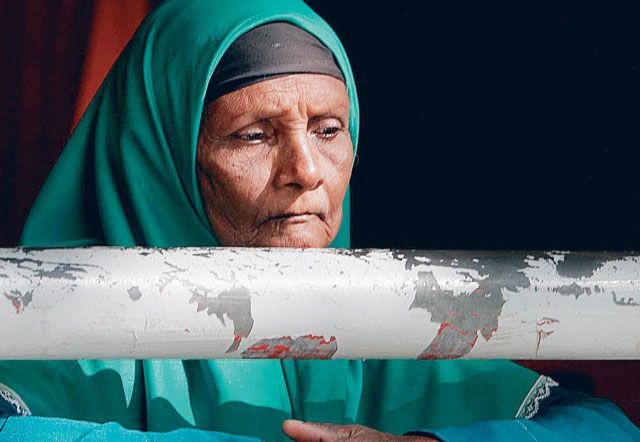Washington : An island in the Indian Ocean, vital to the US military, disappears as the sea level rises. Rivers critical to India and Pakistan shrink, increasing military tensions in South Asia.
Drought, famine and disease forces population shifts and political turmoil in the Middle East.
US defence and intelligence agencies, viewing these and other potential impacts of global warming, have concluded if they materialise it would become ever more likely global alliances will shift, the need to respond to massive relief efforts will increase and American forces will become entangled in more regional military conflicts.
It is a bleak picture of national security that backers of a climate Bill in Congress hope will draw in reluctant Republicans, who have denounced the Bill as an energy tax and jobs killer because it would shift the country away from fossil fuels by limiting carbon dioxide emissions from power plants and industrial facilities.
Dennis Blair, the Obama administration's national intelligence director, has told Congress that global warming will have broad security implications over the next two decades.
Broad implications
Also, the Central Intelligence Agency has created a new group of experts to study the security fallout of increased droughts, population shifts, sea level rise and other likely impacts of severe climate change, and the Pentagon has embarked on a detailed study on the military's vulnerabilities from a warmer world.
Vulnerabilities
"US vulnerabilities to climate change are linked to the fate of other nations," says Kathleen Hicks, a deputy undersecretary for defence.
She told the Senate panel that senior defence officials believe climate change will make US security challenges more difficult and complex.
While the debate over climate legislation has been sharply split along partisan lines, the alarm over impacts on national security has come from both Democrats and Republicans in the defence and intelligence communities.
Among the flash points:
Himalayan glaciers are likely to recede, producing fresh water shortages in India, Pakistan, Bangladesh and parts of China.
Receding Arctic ice could trigger a territorial conflict involving Russia, the United States, Canada and others.
Sea level rise in Bangladesh, and drought in other parts of the world could unleash a flood of cross-border "climate refugees" and violence.
The Indian Ocean island of Diego Garcia, an atoll only a few metres above sea level, likely would disappear, taking away a critical US military staging area.













